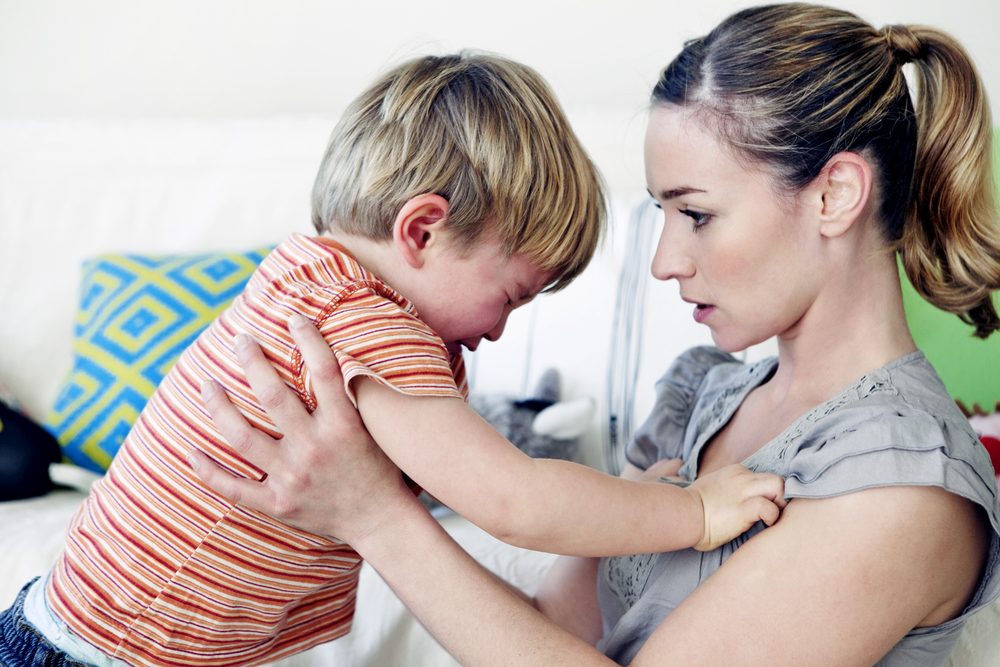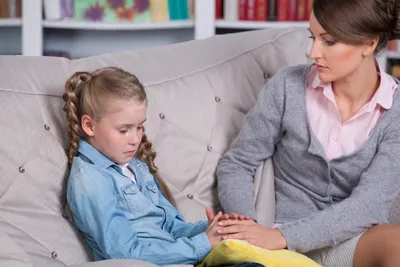Toddlers and children can be unpredictable, even when all conditions seem to be perfect, they still throw a fit. It can be tough to deal with whether you’re indoors or out, and especially if you’re in public. So what are you supposed to do as a parent to deal with an unreasonably angry child?
One of the key things to do is try to keep calm through the meltdown, because losing your patience can make the tantrum worse, reminds Parents.com. However, while breathing your way through it and not feeding the fire, there are some other things to keep in mind when junior has given up decorum. Here are six of them…
1. Let Them Vent it Out
Crying is a fact of life when you’re very young, and sometimes it’s a train that’s not easily stopped. Parents.com suggests that in some cases, there’s precious little that you can actually do, so you may have to just weather the storm.
The keys are to remain nearby to ensure your child doesn’t put itself in danger, and perhaps move them to a space that’s more convenient for others that might have to listen to the entire thing. Parents.com notes of this technique, “They’re able to get their feelings out, pull themselves together, and regain self-control…without engaging in a yelling match or battle of wills with you.”
2. Remove Them Gently
Parenting.com explains that you can nip a tantrum in the bud if you approach it the right way. The particular example the site refers to when it’s time to take away junior from friends and playtime. It needs to be a gentle extraction, and not like tearing off a bandage.
The site suggests you should “embrace long goodbyes,” meaning you condition them to start preparing to leave before it’s time to go. You should give your child some time to “sign off” from what they’re doing, to avoid a loud protest. That could involve having them say goodbye to each friend, or even say farewell to their toys to ease the blow.
3. Don’t Fuel the Fire
Making sure your little one is eating a sufficient amount is one important way to ensure they don’t get grumpy, but you also have to be wary of what you’re giving them. BellyBelly.com based in Australia says you should avoid handing them junk food, which is like jet fuel for tantrums.
“Some foods can make little angels morph into complete rascals,” explains the site. It notes that sweet foods can cause fluctuations in blood sugar (and thus mood), and caffeine can just stoke the fire even more. Cola is one drink that has both caffeine and sugar in spades, so try to avoid that at the least.
4. Make a Deal
PsychCentral.com has some tips that mostly apply to kids diagnosed with ADHD, but they may be just as effective for kids without it. The source suggests you should “explain consequences in advance” to stem the tide of a rising wave of anger from your child.
Examples include warning them they won’t be allowed to watch television again that day if they have a meltdown, or advising them you will leave the store if they complain about not getting a new toy. It may feel counterintuitive for you to do this, but in the long run it might help them control their mood and allow you to hang on to your sanity.
5. Validate their Feelings
In some cases, your child may just be frustrated because they’re having trouble getting your attention or expressing themselves. Greater Good (a website managed by University of California in Berkeley) talks about “emotion coaching,” a three-step approach that begins with validating your child’s feelings. That means saying something like, “I see that you’re angry.”
This helps your child identify their emotions and separate them from their confused fury. The next step may involve a time-out (if needed) to remind them that lashing at others is not the proper way to act, adds the source. After calm has been achieved, you can help your child come up with ways to avoid the trigger or deal with it better in future.
6. Start with Yourself
Believe it or not, you’re still your child’s leading role model, even when they get a bit older. So if they see you getting angry a lot at a situation or a partner, it may normalize the behavior for them. As EmpoweringParents.com points out, “What you do with those feelings is something your child is going to learn.”
That also is relevant when you’re dealing with your child’s anger. If you have a short fuse, then you may lose it yourself, causing the situation to escalate. “Step away from your own emotions to figure out thoughtful responses to these difficult situations,” notes the site, which suggests learning to control your own emotions is just as (if not more) important than teaching your child to control theirs.








